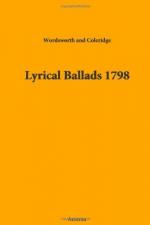|
This section contains 9,909 words (approx. 34 pages at 300 words per page) |

|
SOURCE: Jacobus, Mary. “‘The Tragic Super-Tragic’ and Salisbury Plain.” In Tradition and Experiment in Wordsworth's “Lyrical Ballads” (1798), pp. 133-58. Oxford: Clarendon Press, 1976.
In the following excerpt, Jacobus provides a detailed reading of Wordsworth's Salisbury Plain, noting that the poem is pivotal because it signals the poet's growing awareness of the realities of human suffering.
Wordsworth's earliest attempts to portray suffering are clumsy and overstated, ‘The tragic super-tragic’, in contrast to the effective understatement of his later narrative poetry:
Then common death was none, common mishap, But matter for this humour everywhere, The tragic super-tragic, else left short. Then, if a Widow, staggering with the blow Of her distress, was known to have made her way To the cold grave in which her Husband slept, One night, or haply more than one, through pain Or half-insensate impotence of mind The fact was caught at greedily, and there She was...
|
This section contains 9,909 words (approx. 34 pages at 300 words per page) |

|


